Wyoming Rental Agreement

A Wyoming rental agreement is a legal contract between a landlord overseeing a rental property and a tenant who wishes to use it. Wyoming landlord-tenant law governs these agreements; rental terms must be within the limits allowed by law.
Wyoming Rental Agreement Types
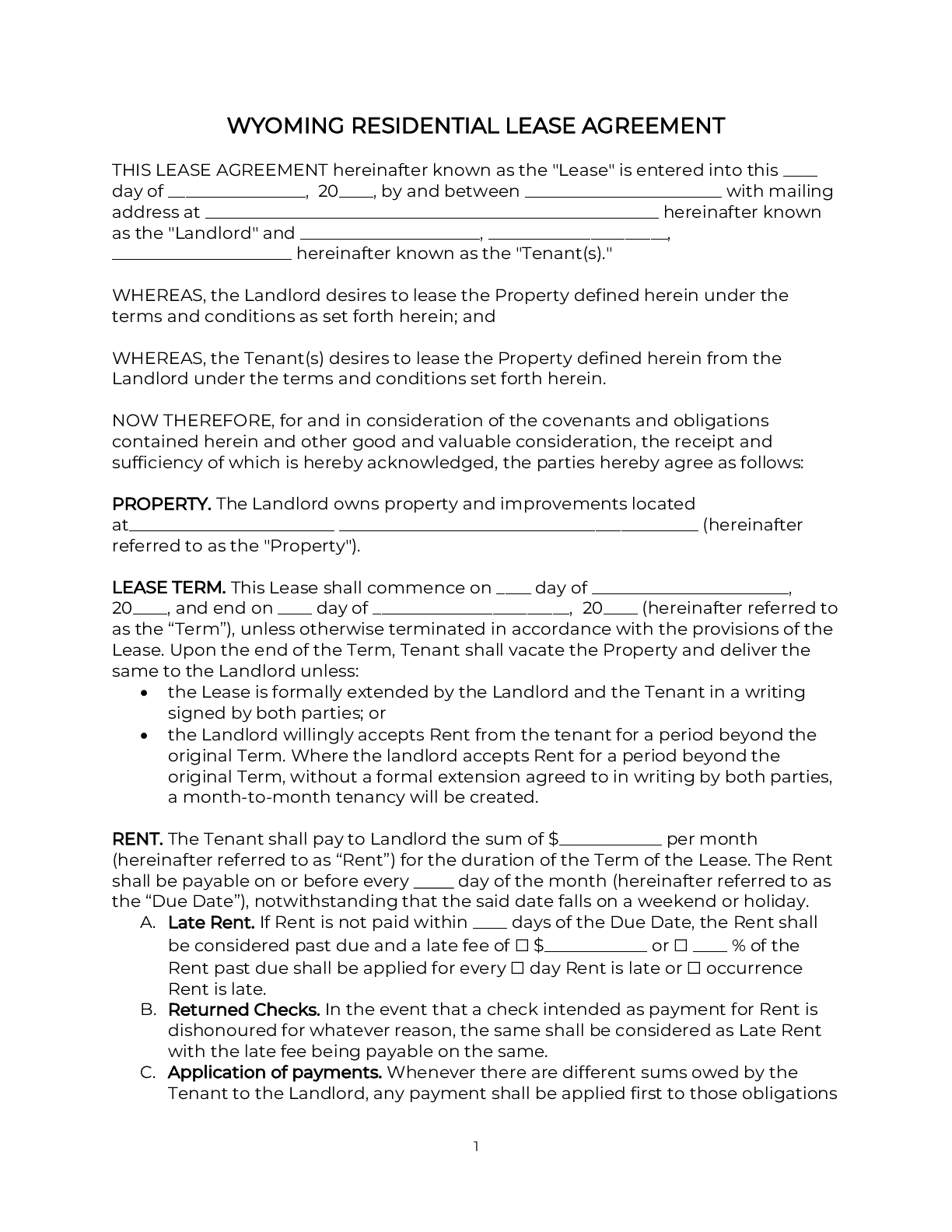
A Wyoming residential lease agreement (“rental agreement”) is a legal contract for a tenant to rent a residential property from a landlord, subject to terms and conditions agreed by all parties.
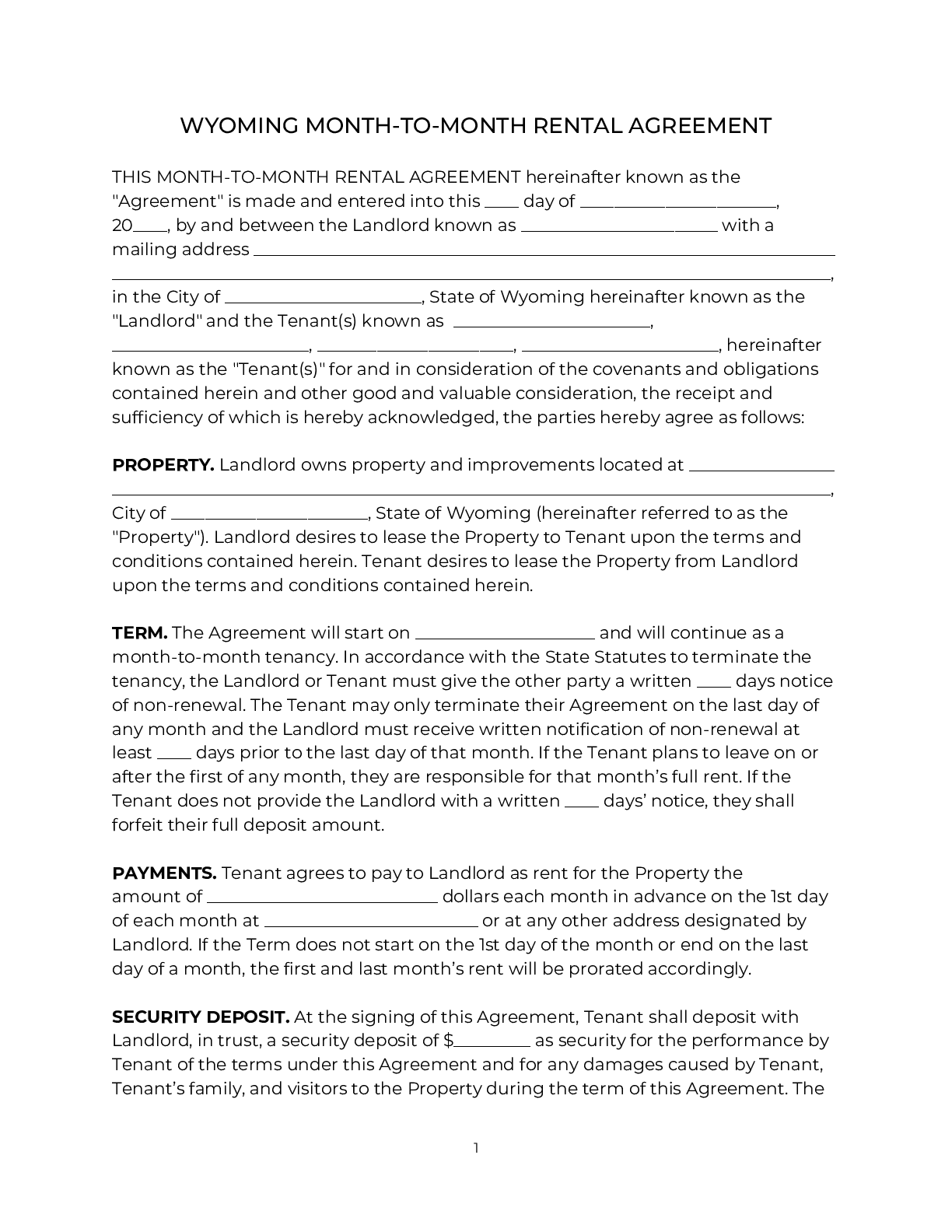
A Wyoming month-to-month lease agreement is a contract (not necessarily written) where a tenant rents property from a landlord. The full rental term is one month, renewable on a month-to-month basis.
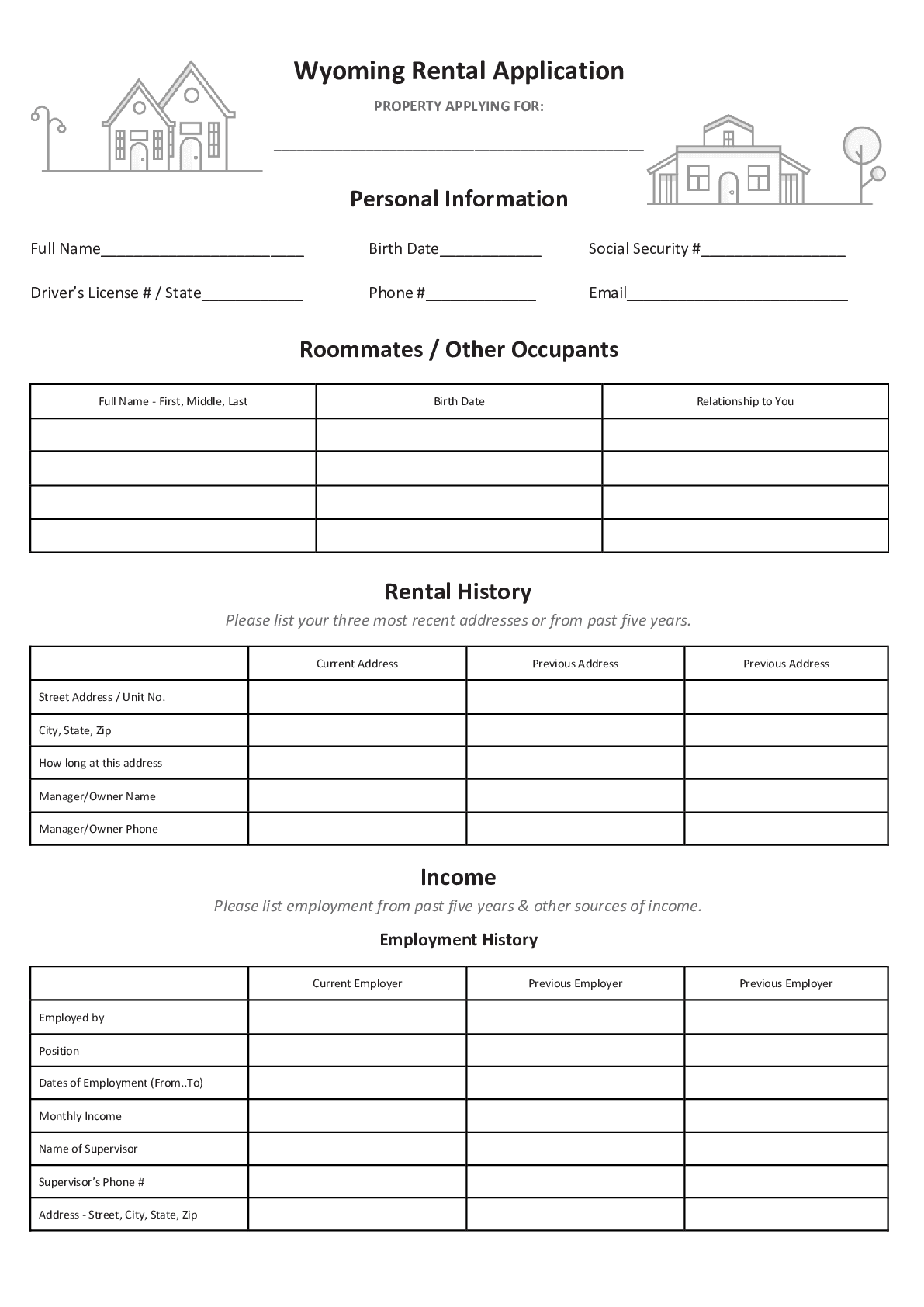
Wyoming landlords may use a rental application form to screen prospective tenants. A rental application collects information relating to finances, rental history, and past evictions.
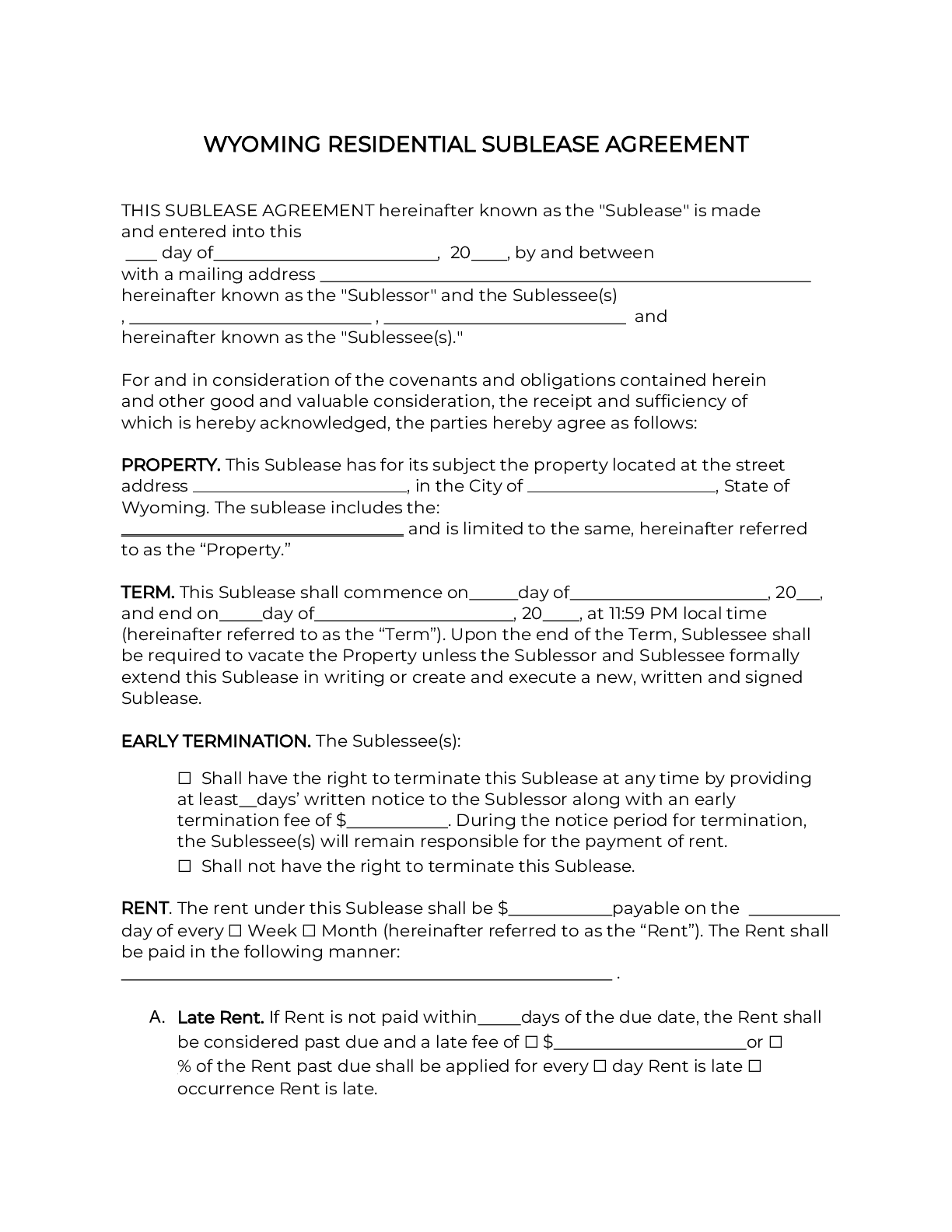 Residential Sublease Agreement" />
Residential Sublease Agreement" />
A Wyoming sublease agreement is a legal contract where a tenant ("sublessor") rents (“subleases”) property to a new tenant (“sublessee”), usually with the landlord’s permission.
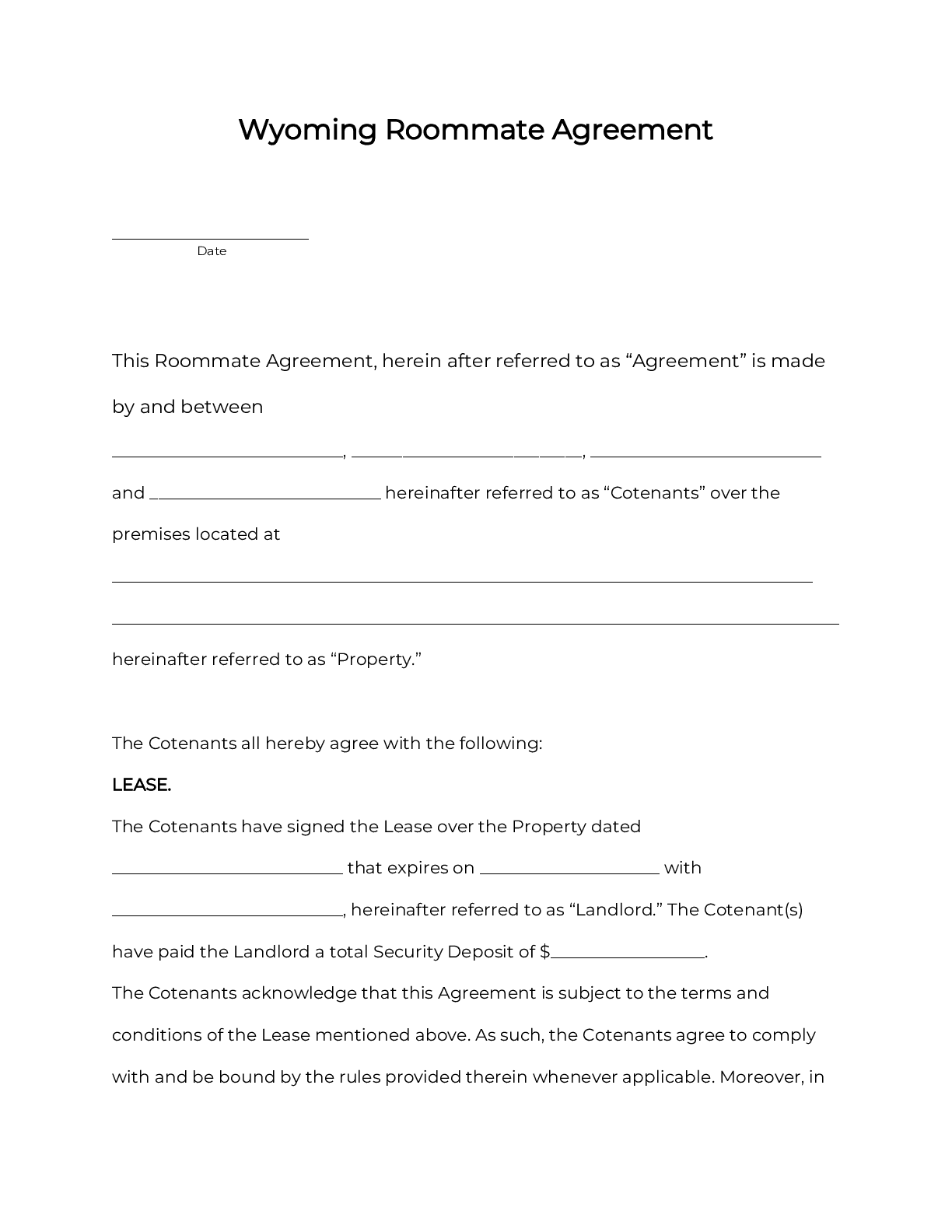
A Wyoming roommate agreement is a legal contract between two or more people (“co-tenants”) who share a rental property according to rules they set, including for things like splitting the rent. This agreement binds the co-tenants living together, and doesn’t include the landlord.
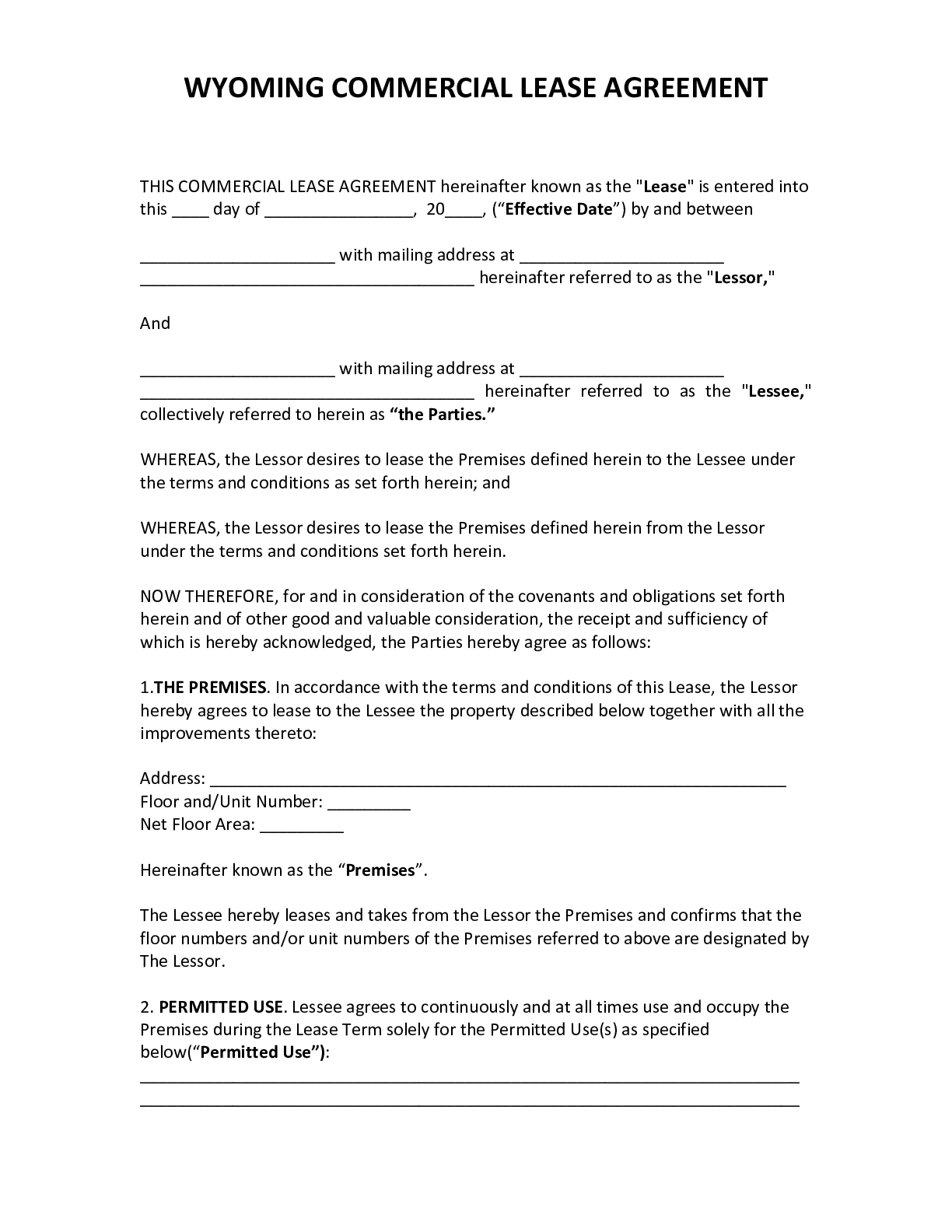
A Wyoming commercial lease agreement is a legal contract arranging the rental of commercial space between a landlord and a business.
Wyoming Required Residential Lease Disclosures
- Non-refundable Fees(required for some leases) – Any non-refundable fees charged during the lease term must be disclosed and agreed in the lease. The tenant may otherwise be legally entitled to a refund.
- Lead-Based Paint Disclosure(required for some leases) – A Wyoming residential lease for a residence built before 1978 must disclose the potential dangers of lead-based paint on the property. This must include an EPA-approved disclosure and informational pamphlet.
To learn more about required disclosures in Wyoming, click here.
Wyoming Landlord Tenant Laws
- Warranty of Habitability – Wyoming has more flexible habitability and repair standards than many other states. Landlords are only obliged to repair major health and safety issues, and they can take a non-specific “reasonable” time (usually interpreted by courts as fewer than 30 days) to perform repairs. When a landlord doesn’t repair after proper notice, a tenant can sue, but can’t repair and deduct, withhold rent, or (typically) terminate the lease.
- Evictions – When evicting a tenant for non-payment of rent, violating a lease term, or committing a crime, a Wyoming landlord must provide a 3-day notice. This makes evictions fast in Wyoming; many take place in just a few days, and it’s uncommon for an eviction to take more than a month.
- Security Deposits – Wyoming does not specify a maximum amount for a security deposit. However, it does require that all collected security deposits be returned within 30 days of lease end, or within 15 days from receipt of the tenant’s forwarding address.
- Lease Termination – Wyoming does not require tenant notice before terminating a month-to-month lease. Fixed-term tenants are normally bound to the term of the lease. There are some cases, such as active military duty, unit uninhabitability, domestic violence, or landlord harassment, which allow early termination of a fixed-term lease.
- Rent Increases and Fees– In Wyoming, there is no cap on rent increases and no notice requirement for an increase. Likewise, there’s no cap on maximum late fees. Bounced check fees are limited to $30 in value.
- Landlord Entry – There’s no specific permission or advance notice requirement before a landlord enters in Wyoming. Terms of entry are usually negotiated in the lease. If the lease is silent, the landlord can enter at reasonable times for purposes reasonably related to the tenancy (repairs, inspections, etc.), plus entry as necessary in emergencies.
- Settling Legal Disputes – Landlord-tenant disputes in Wyoming may be heard in small claims court, as long as the value of the dispute is under $6,000. Small claims also lacks jurisdiction over eviction, which gets heard in the state circuit courts.
To learn more about landlord tenant laws in Wyoming, click here.






 Residential Sublease Agreement" />
Residential Sublease Agreement" />
